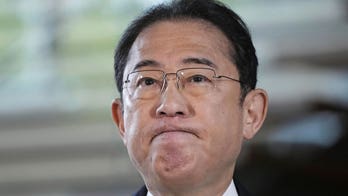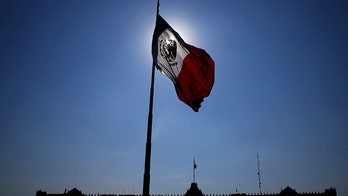The sudden demise of Iran's President Ebrahim Raisi, a known human rights violator, has sparked concerns about the nation's future and the need for the US to adopt a more proactive stance towards Iran.

The unexpected death of Iran's President Ebrahim Raisi in a helicopter crash has brought his oppressive regime's human rights abuses under renewed scrutiny. Raisi, who was notorious for his involvement in the massacre of 5,000 Iranian political prisoners in 1988 and his brutal crackdown on protesters in 2019, had become a symbol of the regime's disregard for its citizens' lives and liberties.
Alireza Nader, an expert on Iran's regime, described Raisi as one of the most malevolent individuals in a brutal regime, whose death poses significant challenges for the succession of Supreme Leader Ali Khamenei. Khamenei, who holds the ultimate power in Iran, had handpicked Raisi as his successor in the 2021 election, which was widely denounced as a sham.

Raisi's death has left a void in the Iranian regime, but experts believe that his replacement will likely be another Khamenei loyalist who will continue the regime's repressive policies. Vice President Mohammad Mokhber, who has been appointed interim president, has a history of overseeing the confiscation of property from dissidents and is also under sanctions by the US and EU.
Raisi's tenure was marked by his expansion of Iran's illicit nuclear weapons program, missile and drone attacks on Israel, and the bloody suppression of the "Women, Life, Freedom" movement. Experts believe that President Biden's conciliatory approach towards Raisi and Khamenei emboldened the Iranian regime to escalate its aggressive actions.

Despite US sanctions on Iran's economy, the Biden administration has granted sanctions relief, claiming that the funds are only intended for humanitarian purposes. However, critics argue that the money is fungible and allows Iran to reallocate its budget to expand its military capabilities.
The German-Iranian dissident Kazem Moussavi urged German officials not to offer condolences to the Iranian regime for Raisi's death, condemning him as a major criminal in Iran's history. Iranian Americans have also expressed outrage over Raisi's appearance at the UN General Assembly, considering him a pariah.

The US State Department has consistently classified Iran's regime as the world's worst state-sponsor of international terrorism, highlighting the need for a firm stance from the US. With Raisi's death, the US must seize the opportunity to reassess its Iran policy and adopt a more assertive approach to deter the regime's malign activities.
The US needs to make Iran worry about its own stability by imposing severe sanctions, supporting Iranian dissidents, and strengthening its military presence in the region. A failure to act decisively will only embolden the Iranian regime and undermine the safety and security of the Middle East.

The death of Raisi has provided a wake-up call for the US and its allies to take the threat from Iran seriously. The US must now prioritize the protection of human rights, the promotion of democracy, and the prevention of nuclear proliferation in Iran. By adopting a tough stance towards the regime, the US can help create a more stable and prosperous future for both Iran and the region.













